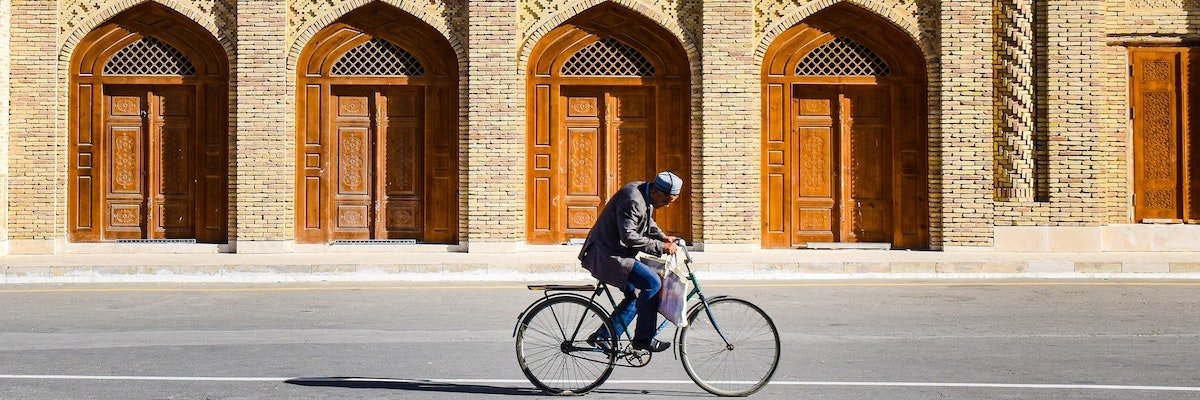When it Comes to Iran, China is Shifting the Balance
In 2016, during his first trip to the Middle East, Chinese Premier Xi Jinping visited both Riyadh and Tehran, a reflection of China’s effort to balance relations among the regional powers of the Persian Gulf. But Xi’s recent trip to Riyadh, his first visit to the Middle East since the pandemic, suggests that China is no longer aiming to treat Iran and its Arab neighbours as equals.
Following the meetings in Riyadh, China and the GCC issued a joint statement. Four of the eighteen points that comprise the joint statement directly pertain to Iran. In the declaration, China and the GCC countries called on Iran to cooperate with the International Atomic Energy Agency as part of its obligations under the beleaguered Joint Comprehensive Plan of Action (JCPOA). Using strong and direct language, the statement additionally called for a comprehensive dialogue involving regional countries to address Iran’s nuclear programme and Iran’s malign activities in the region. The language used was less neutral than that typically seen in Chinese communiqués and instead took the tone of Saudi and Emirati talking points regarding Iran.
Iranian officials were especially vexed to see that China had effectively endorsed longstanding Emirati claims to three islands: Greater Tunb, Lesser Tunb, and Abu Musa. The islands, located in the Strait of Hormuz, were occupied by the Imperial Iranian Navy in 1971 after the withdrawal of British forces. Ever since, Iran has considered the three islands as part of its territory. The United Arab Emirates (UAE) has made periodic attempts over the last four decades to regain control of the islands, claiming that before the British withdrawal, the territories were administered by the Emirate of Sharjah. While the statement does not go so far as to declare that the islands belong the UAE, China’s call for negotiations over their status inherently undermines Iran’s claims.
The reaction of Iranian officials and the public has been sharp. The day after the statement was published, Iranian newspapers featured bitter headlines. One newspaper even provocatively questioned China’s claim over Taiwan. Iranian Foreign Minister Hossein Amir-Abdollahian tweeted that the three Persian Gulf islands belong to Iran and demanded respect for Iran’s territorial integrity. Meanwhile, Iran’s Assistant Foreign Minister for Asia and the Pacific met with the Chinese Ambassador to Iran, Chang Hua, to express “strong dissatisfaction” with the outcome of the China-GCC summit.
Amid the polemic generated by the China-GCC statement, the Chinese official news agency Xinhua announced that Vice Premier Hu Chunhua would visit Iran and the UAE next week. If the stopover in Tehran was intended as a Chinese gesture to ease tensions, the move is likely to backfire. While “Little Hu” had been expected to gain a prestigious seat in the Politburo Standing Committee during the recent National Congress of the Chinese Communist Party (CCP), he was instead demoted from the Politburo and is expected to be removed as Vice Premier in March 2023. Considering Xi’s triumphal visit to Riyadh, the optics surrounding Hu’s planned visit to Tehran are especially bad.
As Xi begins his third term as China’s leader, he appears to be viewing relations with Iran through the prism of liability, rather than opportunity. Despite the fanfare surrounding the beginning of Iran’s long-awaited accession to the China-led Shanghai Cooperation Organisation (SCO) in September, this was a relatively shallow political move. The SCO is an organisation with a limited institutional capacity and substantial internal divisions—Iran’s accession did not herald the opening of a new era in Sino-Iranian relations.
Two issues appear to be hampering China-Iran relations. First, negotiations to restore the JCPOA have failed. With sanctions in place, Iran has struggled to attract Chinese investment and cooperation, especially when compared to Saudi Arabia and the UAE. As I argued in March, economic ties are a pillar of the Comprehensive Strategic Partnership (CSP) that China and Iran have devised, but relaunching economic relations between the two countries requires successful nuclear diplomacy and the lifting of US secondary sanctions. Beijing and Tehran announced the beginning of the CSP implementation phase last January when the nuclear talks appeared likely to succeed. Today, the prospects for implementing the CSP are nill and China-Iran trade is continuing to languish at around $1 billion in total value per month.
Second, Iran’s decision to sell military drones to Russia, thereby becoming actively involved in the war in Ukraine, is proving a significant strategic miscalculation. By actively supporting Russia’s war of aggression, Iran has taken itself out of a large bloc of countries, nominally led by China, that have adopted an ambiguous position towards the conflict. This bloc, which notably includes the GCC countries, is neither aligned with Ukraine and NATO nor openly against Russia and its coalition of hardliner states. In short, Iran’s overt alignment with Russia is at odds with China’s approach.
Meanwhile, the evident strains in US relations with Saudi Arabia and the UAE have created an opening for China to deepen ties with the two regional powers. In some respects, this opening has diminished China’s need to cultivate a deeper partnership with Iran. Ties with Tehran had long been attractive as a means to counterbalance US influence in the region. But Beijing’s success in building deeper relations with Riyadh and Abu Dhabi, two capitals that have long taken their cues from Washington, suggests that China is gaining new means to check US power in the Middle East.
China-Iran relations have seesawed plenty over the years, but the outcome of Xi’s visit to Saudi Arabia suggests a new and more negative outlook for bilateral ties. While Iran tries in vain to “turn East,” China may be shifting away.
Photo: IRNA




